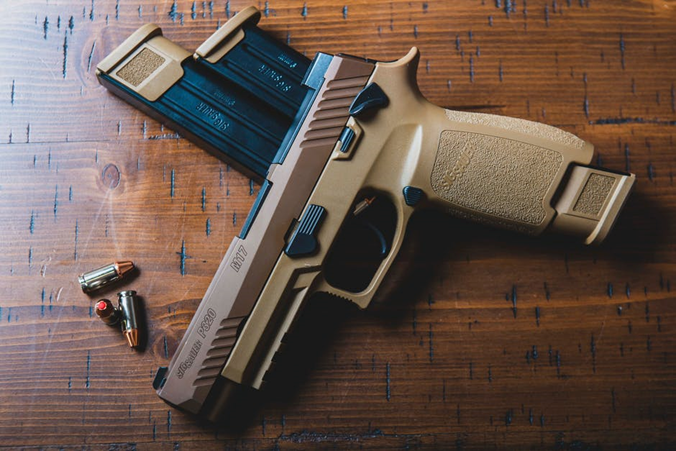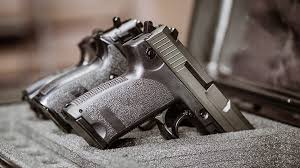Five Things to Know About Ohio Gun Laws

More than five million Americans became first-time gun owners in 2020. The rates of gun ownership across the country are rising, as more people are looking to own a firearm for home protection.
Plus, with the stay-home orders that plagued our country during 2020, and the limitations on travel extending into 2022, more people are taking up hunting for the first time. They are looking to get a hunting rifle so they can provide healthy, natural meat for their family.
If you’re looking to pick up your first gun in Ohio, you need to know Ohio gun laws ahead of time. Gun laws vary from state to state and affect who can purchase firearms, when they can purchase, and how guns need to be transported and stored.
Read on below for five important tips regarding the gun laws of Ohio.
1. Ohio Gun Laws Age and Purchasing Requirements
In the state of Ohio, just like much of the country, you need to be at least 18 years old to purchase a long gun, and 21 years old to purchase a handgun. You also need to be at least 21 to purchase a completed lower receiver or a stripped receiver if you are building your own gun.
Residents and nonresidents can purchase a long gun while they are in Ohio. But only residents can purchase handguns or nonresidents who own property in the state.
To make a purchase, you’ll need an up-to-date driver’s license containing your current address. All firearm purchasers will need to complete a background check during purchase.
This process can take as little as five to 10 minutes, or upwards of 30 minutes. If your record is clean, you can complete the purchase. Sometimes additional research is needed before processing your purchase, and sometimes, your record indicates you cannot purchase a firearm.
2. Ohio Gun Purchase Laws; No Permit Required
To purchase a firearm in Ohio, no permit is necessary. You do not need to apply for a permit to purchase or possess a long gun or handgun.
There are also no Ohio gun registration laws. So after the sale, there is nothing you need to do to ensure good standing regarding your purchase, so long as you follow other laws.
3. Ohio Gun Laws; Shall Issue State
Concealed carry is the act of possessing a handgun in public, yet keeping it concealed on the body. This is generally a holster under the shirt or around the waist.
This gives people a chance to protect themselves in public places, should an emergency situation arise.
To carry a handgun in a concealed manner, you need to get a concealed handgun license (CHL). You need to be at least 21 years old to get one.
Obtaining a license requires a minimum of eight hours of classroom training. You can find these courses offered by most shooting ranges. You’ll need to pay the course fee to pass the course and obtain your license.
Active or former servicemen and women can acquire a license without paying the fee or taking the course. Active military or veterans, who have proof of completed firearms training, won’t need to either.
A CHL allows you to carry a handgun on your person, hidden at all times, in most public places. However, private businesses are allowed to post signs restricting firearms.
Even without a sign in place, if a business owner or employee notices your gun and asks you to leave, you must comply.
4. Ohio Concealed Carry Reciprocity
Ohio participates in concealed carry reciprocity. That means that if you have a CHL from out of state, it will be valid in the state of Ohio.
If you get a CHL in the state of Ohio, it is valid without restrictions in most of the United States. This makes it simple for those who own property in multiple states and spend considerable time in multiple locations. But it’s also simple for those just traveling through, as they won’t have to worry about getting an additional license.
There are a few states that allow the Ohio CHL with additional restrictions. And there are only a couple of states that do not allow concealed carry with an Ohio permit, such as California.
You can learn more about Ohio concealed carry here. It’s always important to know other states’ laws regarding firearms before you enter another state with guns.
5. Ohio Gun Carry Laws; Open Carry
Along with concealed carry by permit, Ohio is an open carry, or traditional carry state as well.
That means that any person who is legally allowed to purchase and possess a firearm is allowed to carry it in public places without the need to conceal it. The gun can be visible to the naked eye.
Most of the time, there is little to no need to actually carry a firearm in the open, even if you are legally allowed to do so. Even many pro-gun organizations generally recommend against it.
It can cause unnecessary unrest and panic in the public, which can make everything more complicated than it needs to be.
There are additional limitations regarding when you can possess a firearm. For example, you cannot possess a firearm while you are under the influence of alcohol or drugs.
You cannot carry a gun while in a vehicle or have a loaded gun in the vehicle. It needs to be stored away from the driver, with ammo stored separately, so that no passenger can access the firearm without stopping the vehicle and getting out.
There are also places, designated by federal law, where you can never bring a gun. These are buildings such as government offices, schools, police stations, and post offices.
Know Your Rights in Ohio
Ohio gun laws are relatively simple to understand. It is generally a firearm-friendly state, with few unnecessary restrictions in place.
No permits are necessary to purchase or possess a firearm. A concealed handgun license is easy to obtain, for those looking to carry on a daily basis.
And while open carry is allowed, it’s not usually advised.
Looking for more information like this? Head over to our blog now to keep reading.








